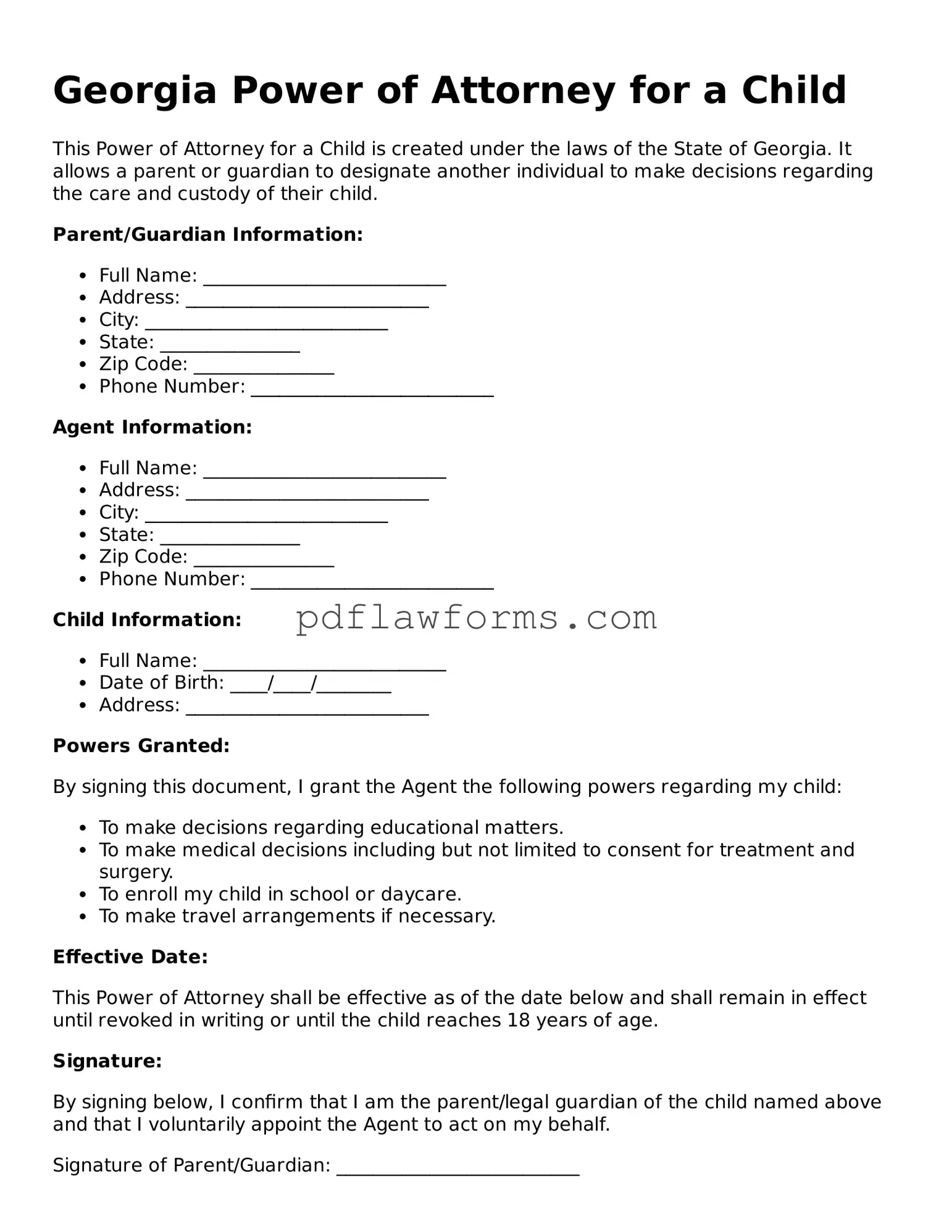Power of Attorney for a Child Form for the State of Georgia
The Georgia Power of Attorney for a Child form is a legal document that allows a parent or guardian to grant another individual the authority to make decisions on behalf of a child. This form is essential for ensuring that a trusted adult can care for the child in the parent's absence. To take the next step, fill out the form by clicking the button below.
Make My Document Online

Power of Attorney for a Child Form for the State of Georgia
Make My Document Online
You’re halfway through — finish the form
Edit and complete Power of Attorney for a Child online, then download your file.
Make My Document Online
or
⇩ Power of Attorney for a Child PDF
